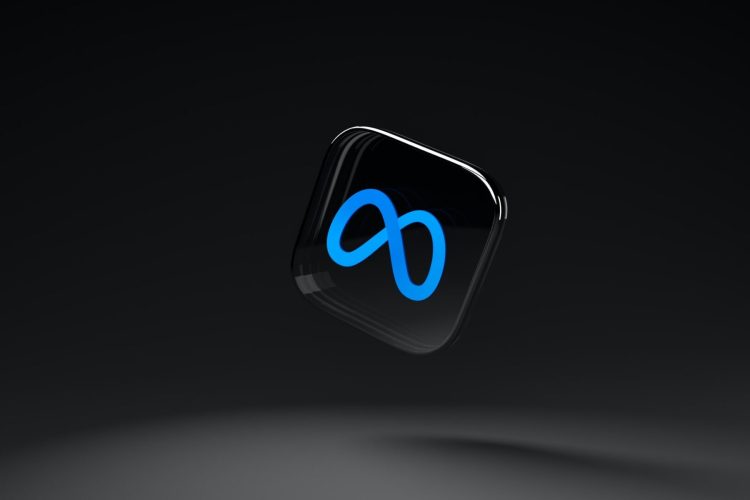Meta, whose market value has steadily declined, is mining gold within its metaverse. CNBC report that Meta, which actively promotes the metaverse, is allowing some game developers to sell digital assets, including NFTs, in its metaverse social software Horizon Worlds. However, as the operator of the game, Meta retains a commission of up to 47.5% from each transaction.

Commissions are not uncommon on internet platforms, live broadcast sales, e-commerce transactions, and mobile app sales. However, with virtual reality still in its infancy, commissions are a rarity.
Meta was an early adopter of virtual reality, buying Oculus in 2014 for $2 billion. A few years later the VR industry experienced its Waterloo, with many if not most companies failing. To Meta, Oculus was and is their “ticket to the future”, which they believed was worth the $2 billion they paid.

Meta has a separate division named FRL (Facebook Reality Labs), which drives the development of the VR / AR software and hardware ecosystem. Zuckerberg has said that Meta is expected to invest $10 billion in the FRL department in 2021 and that this figure will increase in the future.

VR technology and ecological design are both very expensive. Meta’s 2021 financial report shows that the FRL division is losing more than $10 billion per year, making it a real money-burner. However, Meta’s current situation shows that the company itself nor the market will not allow FRL to continue losing so much money. After many years of technological exploration, the market and investors thinks the time for profitability has come.
Meta is largely an advertising company in terms of revenue. In fact, the advertising business accounts for 97% of total revenue in the third quarter of 2021. Due to Apple, the future growth of Meta’s advertising business is now unclear. With the introduction of Apple’s ATT policy last year, it was difficult for Meta, which is based on social software, to obtain accurate user data, which in turn affected the accuracy and cost of advertising.
Not only is the public questioning privacy and security, but with the influence of short video platforms like TikTok, the market’s assessment of the long-term value of Meta is also being influenced.

After Facebook was rebranded as Meta, aggressive advocacy for the metaverse failed to effectively boost Meta’s stock price. In early February this year, after Meta released its fourth-quarter 2021 numbers, the company’s stock price plunged 26%. As of April 16, Meta’s market value was $570.5 billion, nearly halving from its market value of one trillion last September. The gap between Meta and the three largest tech companies (Apple, Microsoft, and Amazon) is widening.
With the 47.5% cut, Meta is obviously trying to prove to the market that the platform has a new profit model and that it has made a difference in the metaverse, which they consider their future development direction.
It’s not about how much revenue Meta can make with this move. It’s about showing users and businesses that Meta has the ability and confidence to take such a high commission. Meta, which holds two trump cards in software and hardware, has enough confidence to set a 47.5% commission rate in VR. According to them, the 47.5% commission rate is not arbitrarily set. 30% accounts for the hardware platform fees with the other 17.5% going to Horizon Worlds software platform fees. If considering the commission rates separately, they are not higher than the 30% commission rate in Apple App Store.

The Counterpoint report says that at the hardware level, Oculus’ market share was 75% in the first quarter of last year, up 41% from the first quarter of 2020. IDC data shows that more than 10 million AR / VR headsets were shipped worldwide last year, an increase of 92.1% year on year, with Oculus’ share reaching 80%. The best-selling hardware has paved the way for the development of Oculus’ software ecosystem and enticed more developers to actively participate. At the same time, the emergence of high-quality exclusive apps and games on many platforms has made consumers more likely to choose VR when purchasing Oculus products.

The decline of the VR industry in 2016 was related to the delay in the development of the VR software ecosystem. Meta, being a software behemoth, not only has popular apps like Horizon Worlds on Oculus, but also dozens of platform-exclusive games like Chronos.
More and more users have become accustomed to downloading and using apps on Oculus. Judging from Oculus’ early deployment of software ecosystem measures, Meta wants to learn from Apple’s original App Store development model and open an application store on the “new” hardware in advance to stimulate platform developers. The only difference is that the metaverse must be based on popular virtual reality apps like Horizon Worlds, and there are more various digital asset products.
If Oculus goes the software profit model route now, it will help solidify its position in the industry. The starting price of Oculus Quest 2 is a full $100 lower than the previous generation (the first generation starts at $399). Based on the product prices, we can see that Meta is conquering the market by lowering the entry price for the hardware and hoping to make money from software services in the future.

The 47.5% commission rate may be temporary, as Apple spokesman Fred Sainz said, “Meta is trying to charge these creators a lot more than other platforms.” The 47.5% commission rate is too high and could drop to around 30%, just like the Apple App Store.






[…] most people cannot explain exactly what the Metaverse is, there have been plenty of people hyping it up as the “next great thing”, launching […]